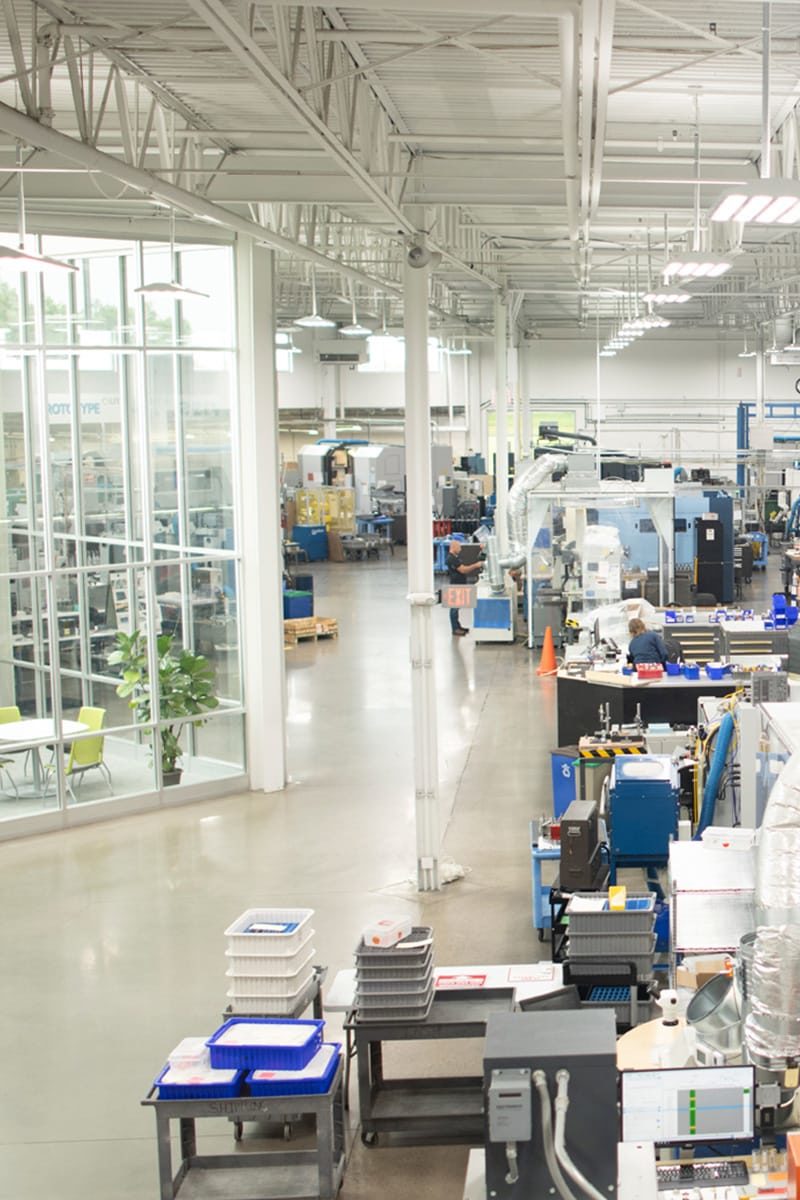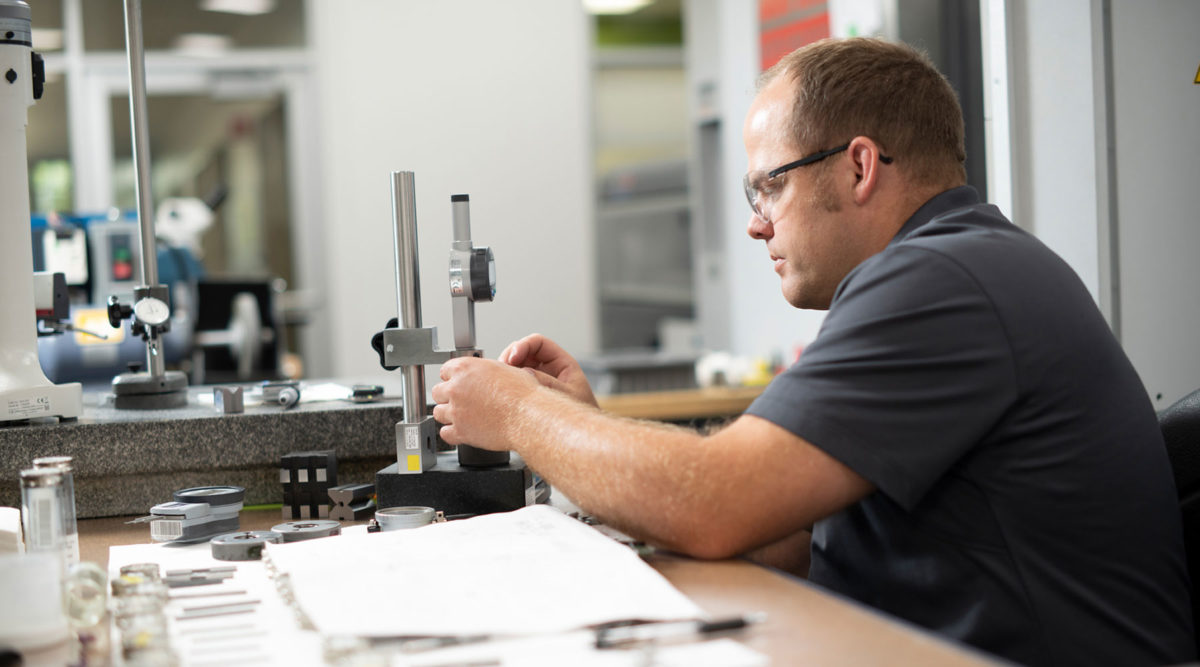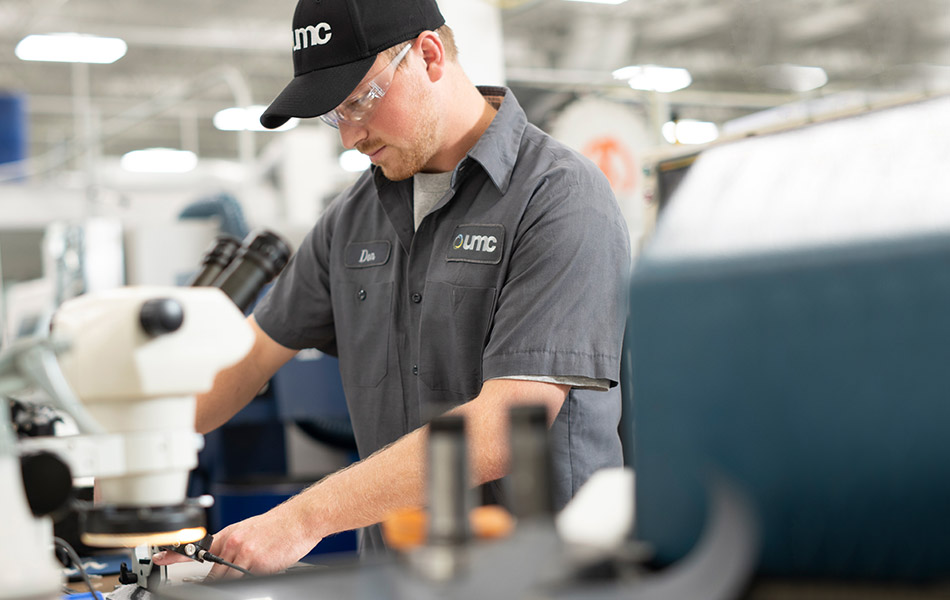What is Swiss CNC Machining?
The Machinists of Tomorrow blog post series helps aspiring machinists learn about the wide variety of equipment and career opportunities available in the exciting world of high precision machining. In this edition, keep reading to learn more about how Swiss machining works, how Swiss machines are used in high precision parts manufacturing, and the many benefits of Swiss machining’s advanced functionality.
From spinal implants to medical instruments to miniature aerospace components, extremely precise parts are the key to keeping some of most critical aspects of our modern world running smoothly. Manufacturing these very small parts within near-perfect tolerances requires the right state-of-the-art equipment paired with the talent and dedication of the next generation of machinists.
What is a Swiss CNC Machine?
A Swiss CNC machine—also known as a Swiss type lathe or a Swiss automatic lathe—is a modern precision manufacturing machine that can produce extremely small parts quickly and accurately.
A Swiss machine works by feeding bar stock through a guide bushing, which firmly supports the material as it feeds into the tooling area of the machine. In addition, only the portion of the bar stock being machined advances into the tooling area, which means that material is held tightly in place for increased stability and precision.
With a traditional CNC lathe, the workpiece typically rotates rapidly in a fixed position, held firmly on one or both ends. In contrast, with a Swiss lathe, the workpiece can both turn and move back and forth along the Z-axis while various tools cut away the features of the part. Furthermore, Swiss turning machines can perform several operations simultaneously in multiple zones, whereas a traditional lathe typically only performs one operation at a time.
Although Swiss machines have traditionally been used for turned pieces like screws, Swiss machines can also produce complex pieces that have no turned surfaces at all.
Benefits of Swiss Machining
Originally designed for the watch-making industry, Swiss machines have exploded in popularity within precision manufacturing. This is because Swiss type lathes are uniquely capable of producing extremely small, precise parts at a rapid pace. The combination of high precision and high production volume make Swiss machines a critical piece of equipment for shops that must produce a large volume of small and intricate parts with little margin for error.
Key benefits of swiss machining include:
- Extremely tight tolerances – Swiss machines firmly support the workpiece right next to the point of operation throughout the machining process. Because the piece is supported so close to the tooling operation, the part remains steady, virtually unaffected by the force of the tools. This ensures precision within extremely tight tolerances—even when machining very small parts.
- More Complex Parts – Because of how well the bar stock is supported throughout the machining process, Swiss machines can also produce more intricate parts with thinner walls, more delicate features, and deeper cuts that would not be possible on other machines.
- Fast Pace – The cycle time for a Swiss machine can be significantly shorter than other types of CNC machines. Where other machines may require an hour or more to machine a single part, Swiss machining can produce upwards of 30 parts per hour, depending on the size and complexity of the part.
- Ready-to-Ship Parts – Swiss machines produce such a fine and precise result that these machines can reduce or eliminate the need for secondary operations, often resulting in parts that are ready to ship right out of the machine.
UMC’s Swiss Machining Capabilities
“UMC is not a typical Swiss machining shop,” according to Don Bush, a Swiss machinist at UMC, “We take the hardest parts that other shops won’t.” At UMC, we’re able to take on these advanced projects because we have exceptionally skilled machinists and the newest, industry-leading equipment to execute the project to meet our customers’ stringent requirements.
For example, our Swiss machining equipment includes some of the newest and most advanced machines on the market including the STAR SR-20RIV Type B, which features a 27-position tool station that can house up to 41 tools, enabling a wide variety of machining capabilities.




